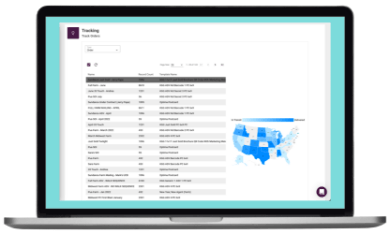Would you prefer to watch a video on becoming a part-time real estate agent? We have included our YouTube.
Can you be a part-time real estate agent? Absolutely!
However, you will want to focus on various factors before making this decision. Starting a career in real estate is similar to a journey through a labyrinth of opportunities, challenges, and growth. Many aspiring agents begin their careers part-time, balancing their real estate responsibilities with other commitments.
In contrast, others aspire to transition to full-time real estate in pursuit of greater success and fulfillment.
In this article, we will explore the multifaceted industry of real estate, from setting clear goals and building a sustainable client base to maximizing income potential and making a successful transition to full-time real estate.
Each aspect of this journey is crucial for aspiring agents who want to pursue a successful career in real estate.
Join us as we explore the strategies, considerations, and insights that will empower you to navigate this journey with confidence, clarity, and purpose, ultimately leading you toward a fulfilling and prosperous career in real estate.
Let’s begin with some of the advantages and disadvantages of becoming a part-time real estate agent.

The Pros of Being a Part-Time Real Estate Agent
Part-time agents enjoy the flexibility of not having to worry about paying their bills while getting started in real estate. Relying on a steady paycheck from another job can alleviate the stress of covering living expenses during the initial stages of your real estate career.
Another benefit is the opportunity to learn while you earn. Many successful real estate teams offer mentorship programs designed to teach you the ropes, from lead generation to hosting open houses.
By starting part-time, you can ease into the industry and gradually build your client base while gaining valuable experience along the way.
The Cons of Being a Part-Time Real Estate Agent
On the flip side, part-time agents may face challenges due to limited availability. Balancing real estate responsibilities with a nine-to-five job can be tricky, especially when it comes to coordinating showings and meetings during traditional business hours.
Time can also be a potential pitfall. Even ambitious full-time agents can go months without closing their first transaction.
Pursuing real estate part-time can double the time it takes to see results, which can be discouraging, especially when you have the safety net of a full-time job to fall back on.
What You Need to Know Before Becoming a Part-Time Real Estate Agent
If you have decided to become a part-time real estate agent, we’ve got your roadmap to success right here. From navigating legal and ethical considerations to time management, we’ve covered everything you need to know. With these insights, you’re equipped to tackle part-time real estate with confidence.
Navigating Legal and Ethical Considerations:
Part-time agents must adhere to legal and ethical standards in their real estate transactions.
Let’s examine these legal and ethical considerations, including fair housing laws, disclosure requirements, and professional conduct standards. By understanding and complying with these regulations, part-time agents can build trust with clients and mitigate potential risks in their transactions.
Fair housing laws prohibit discrimination in housing based on protected characteristics such as race, color, religion, sex, national origin, disability, and familial status. Part-time agents must familiarize themselves with these laws to ensure they treat all clients fairly and avoid any discriminatory practices.
Disclosure requirements mandate that real estate agents disclose all material facts about a property that could affect a buyer’s decision. This includes information about the property’s condition, any known defects, environmental hazards, zoning restrictions, and past renovations. Part-time agents must be diligent in gathering and disclosing this information to clients to avoid legal liabilities and ensure transparency in transactions.
Professional conduct standards dictate how real estate agents should conduct themselves in their interactions with clients, colleagues, and the public. Part-time agents must always adhere to ethical principles such as honesty, integrity, and professionalism. This includes accurately representing properties, communicating openly and transparently with clients, and respecting the confidentiality of sensitive information.
By upholding these legal and ethical standards, part-time real estate agents can build a reputation for trustworthiness, integrity, and professionalism in the industry. This will not only enhance credibility with clients but also reduce the risk of legal disputes and disciplinary actions.

Creating a Long-Term Growth Strategy
Creating a long-term growth strategy is similar to laying the foundation for a sturdy skyscraper. It requires meticulous planning, attention to detail, and a forward-thinking mindset. In real estate, where the market is constantly changing, a robust growth strategy is essential for navigating the complexities of the industry and achieving success.
Strategic Vision
At the heart of a long-term growth strategy lies a strategic vision that serves as a guiding light to the path forward. This vision isn’t just a lofty aspiration; it’s a concrete roadmap outlining your objectives, priorities, and milestones. With a clear vision in mind, you can chart a course toward your long-term goals and maneuver the twists and turns of real estate with confidence and clarity.
Market Analysis
Before beginning any growth initiatives, it’s essential to conduct a comprehensive market analysis. This involves assessing market trends, identifying emerging opportunities, and understanding the competition. By gaining insights into market dynamics, consumer behavior, and industry trends, you can identify untapped real estate niches, capitalize on emerging trends, and position yourself for success.
Diversification
Diversification is a crucial strategy for mitigating risk and maximizing growth potential in real estate. Instead of putting all your eggs in one basket, consider diversifying your portfolio by exploring different property types, geographic markets, and investment strategies.
This may involve branching out into commercial real estate, residential rentals, vacation properties, or real estate development. As a part-time real estate agent, diversifying your portfolio can help you capitalize on emerging opportunities and gain new sources of revenue and growth.
Innovation
Innovation is the lifeblood of growth in the real estate industry. Embrace technology, adopt new tools and platforms, and explore innovative approaches to marketing, sales, and client engagement. Whether it’s using virtual reality for property tours, utilizing artificial intelligence for lead generation, or implementing blockchain technology for transparent transactions, embracing innovation can give you a competitive edge in real estate.
Scalability
Scalability is essential for long-term growth and sustainability in real estate. As your business expands, it’s crucial to build scalable systems and processes that can accommodate growth and adapt to changing market conditions.
Continuous Improvement
In real estate, continuous improvement is essential for staying ahead of the curve and maintaining a competitive edge. Invest in ongoing training, education, and professional development to expand your skills, knowledge, and expertise. Stay up to date on industry trends, best practices, and emerging technologies to ensure you’re always at the forefront of innovation and excellence.
Setting Clear Goals
Setting clear goals is like charting a course on a map; it provides direction, purpose, and a sense of accomplishment as you progress toward your desired destination. In real estate, where the path to success can be winding and uncertain, setting clear goals is essential for guiding your actions and ensuring you stay focused on what matters most.
Define Your Objectives
The first step in setting clear goals is to define your objectives with precision and clarity. Ask yourself: What do I want to achieve in my real estate career? Whether it’s increasing your income, expanding your market reach, or achieving a specific milestone, be specific about what you want to accomplish. By articulating your objectives in clear, concrete terms, you can create a roadmap for success and measure your progress along the way.
Make Your Goals SMART
To ensure your goals are practical and actionable, make them SMART: Specific, Measurable, Achievable, Relevant, and Time-bound.
Specific goals are clear and well-defined, leaving no room for ambiguity or interpretation. Measurable goals are quantifiable, allowing you to track your progress and evaluate your success. Achievable goals are realistic and attainable, given your resources, skills, and constraints. Relevant goals are aligned with your overall vision and priorities, contributing to your long-term success. Time-bound goals have a deadline or timeframe attached to them, providing a sense of urgency and accountability.
Break Your Objectives Down
Once you’ve defined your objectives and made them SMART, break them down into smaller, more manageable tasks and milestones.
Breaking your goals down into bite-sized chunks makes them more manageable and easier to tackle. It also allows you to track your progress more effectively and celebrate small victories along the way. Whether it’s closing a certain number of transactions, increasing your income by a specific percentage, or obtaining a new certification, breaking your goals down into smaller steps makes them more achievable and actionable.
Write Them Down
Research shows that people who write down their goals are more likely to achieve them than those who don’t.
Take the time to write down your goals in a journal, notebook, or digital planner. Writing down your goals not only helps you clarify your intentions and commit them to memory, but it also serves as a constant reminder of what you’re working towards. Place your written goals somewhere visible, such as on your desk or refrigerator, to keep them at the top of your mind.
Review and Revise
Setting clear goals isn’t a one-time exercise; it’s an ongoing process that requires regular review and revision.
Periodically review your goals to assess your progress and make any necessary adjustments or course corrections. Ask yourself: Are my goals still relevant and aligned with my priorities? Have I made measurable progress toward achieving them? What obstacles or challenges have I encountered, and how can I overcome them?
By regularly reviewing and revising your goals, you can stay flexible, adaptable, and responsive to changing circumstances, ensuring you stay on track toward success in your real estate career.

Building a Sustainable Client Base
Building a sustainable client base is the cornerstone of success in the real estate industry. It’s not just about closing deals; it’s about creating long-lasting relationships built on trust, integrity, and exceptional service.
Cultivate Trust and Credibility
Trust is the currency of the real estate industry. Clients need to trust that you have their best interests at heart and that you have the knowledge and expertise to guide them through the buying or selling process.
Build trust by demonstrating your credibility through your actions, words, and results. Be transparent, honest, and responsive in your communications, and always follow through on your commitments.
Prioritize Client Relationships
In a competitive real estate market, it’s easy to focus solely on closing deals and forget about the human side of real estate.
However, building a sustainable client base requires prioritizing relationships over transactions. Take the time to listen to your clients’ needs, concerns, and preferences, and tailor your services to meet their unique requirements.
Show genuine care and empathy for your clients’ situations, and go above and beyond to provide personalized solutions and support.
Leverage Referrals and Word-of-Mouth
Referrals and word-of-mouth are potent tools for building a sustainable client base in real estate. Happy clients are your best advocates, and they can help you attract new business through referrals and recommendations.
Provide exceptional service and proactively ask for referrals to encourage satisfied clients to refer their friends, family members, and colleagues to you. Offer incentives or rewards for referrals, such as discounts on future services or gift cards, to encourage clients to spread the word about your business. By taking advantage of the power of referrals and word-of-mouth marketing, you can tap into an endless source of potential clients and grow your client base organically.
Invest in Client Education and Communication
Empowering your clients with knowledge and information is critical to building trust and loyalty in real estate. Educate your clients about the buying or selling process, market trends, and local regulations so they can make informed decisions. Keep your clients informed and engaged throughout the transaction process through regular communication and updates. Use a variety of communication channels, such as phone calls, emails, text messages, and social media, to stay in touch with your clients and provide them with timely information and support.
BROWSE WISE PELICAN REAL ESTATE POSTCARDS
Provide Exceptional Service and Value
In a crowded marketplace, providing exceptional service and value is essential for standing out and building a sustainable client base.
Strive to exceed your client’s expectations at every touchpoint, from the initial consultation to the closing table and beyond. Anticipate your client’s needs and proactively address any concerns or challenges that arise during the transaction process. Always offer value-added services, such as home staging, professional photography, and virtual tours, to enhance the buying or selling experience for your clients.

Maximizing Income Potential
Maximizing income potential is a primary objective for real estate professionals looking to achieve financial success and stability in their careers.
Diversify Your Revenue Streams
Diversifying your revenue streams is one of the most effective ways to maximize your income potential in real estate.
Instead of relying solely on commission income from property sales, explore additional avenues for generating revenue. This may involve providing additional services such as property management, real estate investment consulting, or real estate education and training. By diversifying your revenue streams, you can create multiple sources of income that contribute to your overall earning potential and provide stability during market fluctuations.
Focus on High-Value Transactions
Not all real estate transactions are created equal. To maximize your income potential, focus on high-value transactions that offer substantial commission payouts.
This may involve specializing in luxury properties, commercial real estate, or high-end residential properties in affluent neighborhoods. By targeting high-value transactions, you can increase your earning potential and maximize your return on investment in terms of time and effort spent. However, note that high-end transactions typically take longer to close than other niches, such as first-time homebuyers.
Leverage Technology and Automation
In today’s digital age, technology and automation tools can help real estate professionals streamline their workflows, increase efficiency, and maximize their income potential. Invest in technology tools such as customer relationship management (CRM) software, email marketing platforms, and transaction management systems to automate repetitive tasks and streamline your business operations.
By leveraging technology and automation, you can free up more time to focus on income-generating activities such as lead generation, client engagement, and closing deals, thereby maximizing your earning potential.
Implement Effective Marketing Strategies
Marketing plays a crucial role in maximizing income potential in real estate by attracting leads, generating interest in properties, and showcasing your expertise and value proposition to potential clients.
Implement effective marketing strategies, including social media advertising, real estate SEO, and email campaigns, to reach your target audience and generate leads. Invest in professional photography, virtual tours, and staging services to showcase properties in the best possible light and attract qualified buyers.
Invest in Professional Development
Continuously investing in your professional development is essential for maximizing income potential and staying ahead of the competition in real estate. Attend training programs, obtain certifications, and participate in workshops and seminars to expand your knowledge, skills, and expertise. Pay close attention to industry trends, market dynamics, and emerging technologies to remain competitive and position yourself as an expert in your field.

Transitioning to Full-Time Real Estate
Transitioning to full-time real estate represents a significant career milestone for many agents, marking a pivotal shift from a part-time endeavor to a full-fledged commitment to the industry.
Assess Your Readiness
Before leaping into full-time real estate, it’s essential to assess your readiness and commitment to the transition.
Evaluate your financial situation, including your savings, expenses, and projected income from real estate. Determine if you have an adequate financial cushion to support yourself during the initial stages of full-time real estate, when income may be inconsistent or unpredictable. Consider your personal and professional obligations, such as family responsibilities and other commitments, and ensure that you’re prepared to dedicate the time and energy required to succeed in a full-time real estate career.
Develop a Transition Plan
Creating a detailed transition plan is vital for making a smooth and successful transition to full-time real estate.
Outline the steps and milestones involved in the transition process, including your target date for going full-time, your income goals, and the actions you need to take to achieve them. Consider factors such as lead generation, marketing strategies, client acquisition, and administrative tasks, and develop a timeline for completing each task. Set measurable goals and benchmarks to track your progress and hold yourself accountable throughout the transition process.
CREATE A FREE WISE PELICAN ACCOUNT – NO CREDIT CARD REQUIRED
Build Your Client Base
Building a solid client base is essential for success in full-time real estate. Start by taking advantage of your sphere of influence. This is your existing network of contacts, including friends, family members, colleagues, and acquaintances, to generate leads and referrals.
Provide exceptional service and value to your clients to earn their trust and loyalty, which will lead to repeat business and referrals. Consider joining a real estate team or brokerage with a strong support system and mentorship program to help you jumpstart your career and accelerate your growth in full-time real estate.
Manage Your Finances
Transitioning to full-time real estate often involves a period of financial adjustment as you transition from a steady paycheck to a commission-based income.
Take proactive steps to manage your finances effectively during this transition period. Create a budget to track your income and expenses, and identify areas where you can reduce costs or increase revenue.
Set aside a financial cushion to cover your living expenses during the initial stages of your full-time career, and plan for any additional expenses such as health insurance, retirement savings, and taxes. Consider working with a financial advisor or accountant to help you manage your finances and plan for the future.

Start Marketing With Affordable Real Estate Postcards
Navigating the twists and turns of being a part-time real estate agent requires resilience, determination, and strategic planning. By capitalizing on the advantages of financial stability, learning opportunities, and flexible scheduling while addressing the challenges of limited availability and extended timelines, part-time real estate agents can carve out a niche for themselves in the real estate industry.
Using your sphere of influence and marketing yourself is vital to making it in real estate. Most part-time and new full-time agents have a limited marketing budget. Utilizing free marketing through social media such as Facebook and Instagram is a great way to let your sphere of influence know you have joined the world of real estate.
However, you also want people outside of your sphere to recognize you as a knowledgeable agent. Wise Pelican real estate postcards are a great way to get your face seen in the area or region you want to work in.
There is no minimum order, and you can create a free account with no credit card required.






